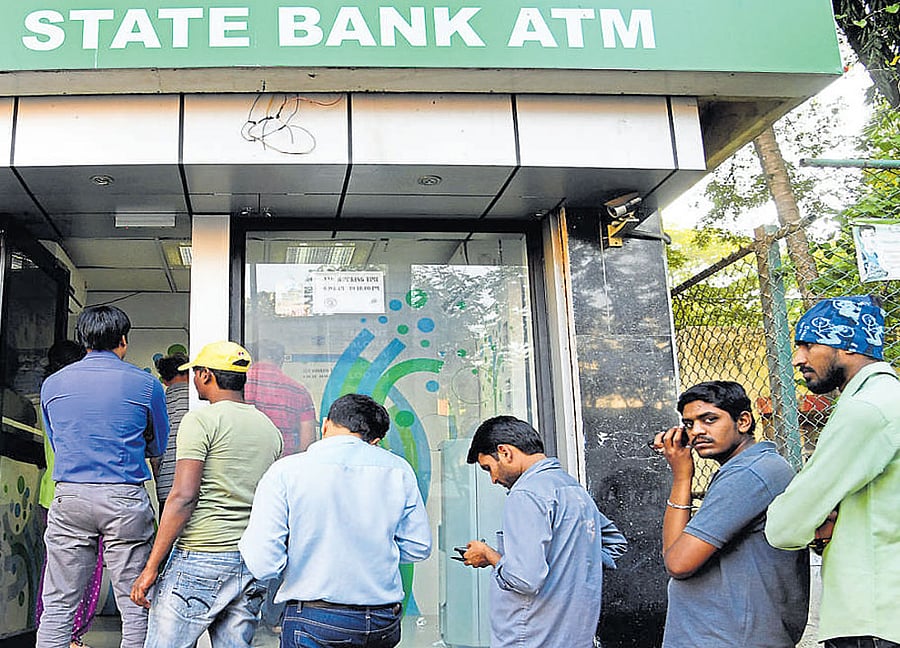
Though the new Rs 500 notes have begun to trickle into the city, many people are struggling to lay thier hands on lower denomination notes. Only a few ATMs have been dispensing the new 500-rupee notes, especially in the periphery of the city. Citizens have mostly been relying on debit cards for payments, while a few people are lucky enough to possess the new currency notes.
S K Srinivas, All India Bank Officers’ Association, said things will normalise in two or three days. “This is a mammoth task, with a few companies like CMS sand NCR which handle the recalibration of machines, facing logistical issues. Most of the work will be completed by the end of this month," he said.
On Sarjapur Road, while the Bank of Baroda near the St John’s Medical Hospital is open intermittently, the ones belonging to South Indian Bank and Federal Bank are shut. St John’s Hospital has at least 1,000 outpatients everyday, who have been struggling without lower denomination notes. The Bank of Baroda inside the premises meant for staff use, is now being used for currency exchange. "The queues are long and exhausting for patients, who are troubled with health issues as it is," said a professor in the hospital under anonymity.
SBI in Koramangala II Bock had a board which said only Rs 2,000 notes were available on Wednesday. Most ATMs were closed in the area on Wednesday. V K Srivastava, who lives close to Kanakapura Road, tried his luck at SBM, Karnataka Bank and Andhra Bank on Tuesday, but to no avail. On Tuesday night, Andhra Bank started to dispense the 500-rupee note.
At 8.45 pm, Jagadeesh Hedge, a finance manager at Accenture, who was inconvenienced by long queues to the ATMs on his office campus, went to this bank as there were hardly any people. He was able to draw Rs 1,500 in Rs 500 notes and Rs 500 in Rs 100 notes. "My family managed with digital transactions," he said.
In Peenya, there was excitement in ABB, a power and automation company, when it was announced on Tuesday evening that the new notes were pumped into the machine within the premises. "Instantly, around 20 people queued up to lay their hands on the new notes in front of ICICI Bank," said Niyaz Ahmed, Programme Officer.
Those who went cashless
Aditi Devanathan, director of MediaGhar, a marketing company, believes there are others who need the cash more than her and chooses to go cashless instead. Whenever there is a need to buy groceries, she makes sure she goes to an outlet that has the EDC (electronic data capture) machine. “Travel is my biggest expense. Ola accepts cards and I rely on the service to get around. Even when I'm going to the airport, I will only use Mega Cabs for the same reason,” she said.
Graphic Designer Adeela Abdul Razak is someone who swears by online transactions. “My husband and I never had liquid money any way. We buy groceries on Big Basket, pay power bills on Paytm and our maid through a bank,” she said.
